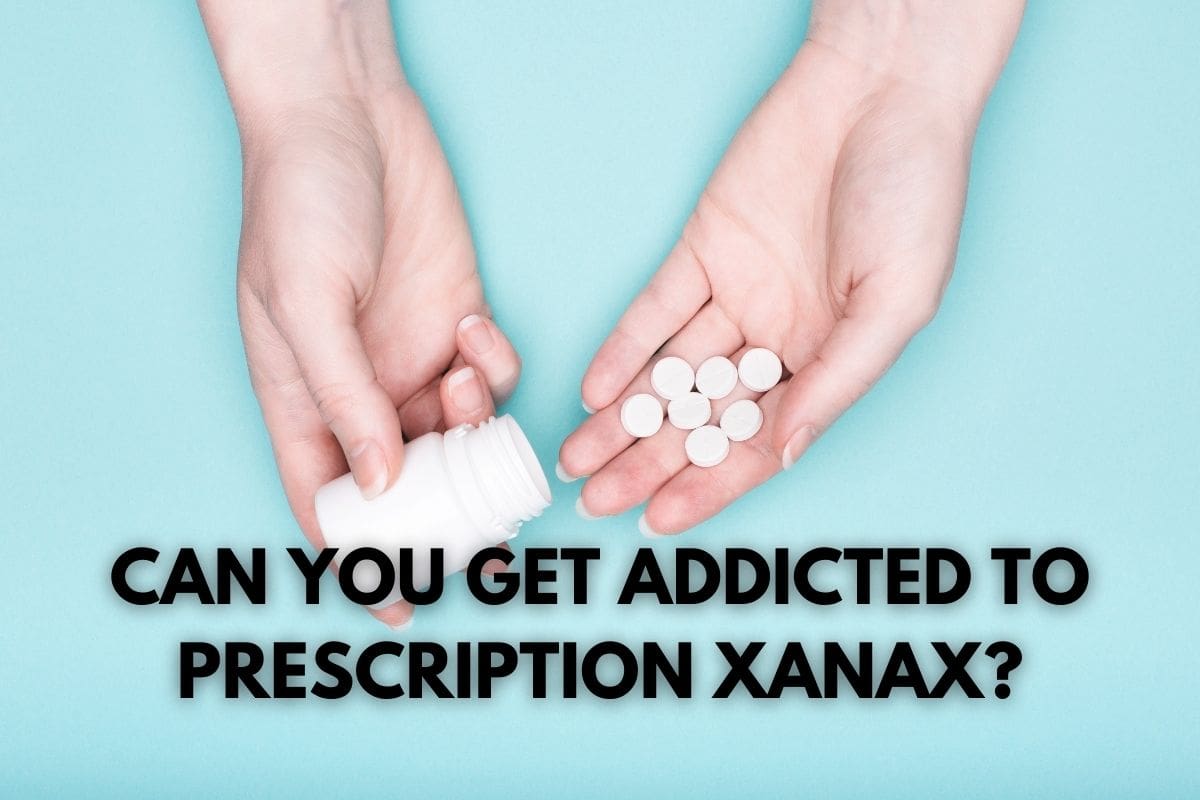In short, yes, a person can develop an addiction to Xanax. Close to 40% of Xanax users will develop a habit of it. Still, Xanax can effectively treat panic attacks, anxiety, and depression. Unfortunately, the drug is also considered highly addictive. Over 50 million people in the United States use Xanax – with and without a prescription.
What Is Xanax?
Xanax is the brand name of Alprazolam, a type of benzodiazepine – or benzo – that is essentially a tranquilizer. Like most benzos, Xanax works on the central nervous system and the neurotransmitter gamma-aminobutyric acid (GABA). It slows down nerve cell activity in the brain to calm nervous system impulses, such as those common with anxiety and panic attacks. Due to its high potential for abuse, Xanax is only available through a prescription.
How Addictive Is Xanax?
Xanax is a short-acting benzodiazepine. This means it produces noticeable calming effects in the brain in a short period of time. Due to its short-acting nature, it’s considered one of the most addictive benzodiazepine medications. Even when taken as prescribed, most users will develop a tolerance to Xanax. They’ll likely need to take larger doses or increase their frequency to experience the same effects when this develops.
How Long Does It Take To Get Addicted to Xanax?
Not everyone who takes Xanax will develop an addiction. Yet, some individuals can become dependent in just three or four weeks of use. This is mainly because of how benzodiazepines operate in the body, which is why most Xanax prescriptions are meant for short-term use. Unfortunately, estimates believe that four in every ten Xanax users will eventually develop an addiction.
Is Xanax Still Addictive In Low Doses?
No. Since Xanax is a short-acting benzodiazepine, ideal use involves a low dosage to prevent tolerance buildup and addiction. When prescribed and used accordingly, Xanax should not lead to addiction. However, there are many other factors involved in addiction development. Family history of addiction, other mental health disorders, polysubstance abuse, and so on can increase someone’s risk of developing an addiction.
Is Xanax XR Less Addictive?
Xanax XR is formulated as a long-acting benzodiazepine. This means the drug acts slowly in the system and takes longer to exit. Xanax XR is absorbed at a slower rate than regular Xanax. Most Xanax XR users only take one pill every 24 hours. Still, when misused, Xanax XR can be habit-forming, especially when combined with other substances such as alcohol.
Am I Addicted to Xanax?
If you or someone you love is a Xanax user, it might be tricky to recognize early signs of addiction. Learning about the symptoms of addiction can help you seek help and start treatment to find long-lasting recovery. Here are some of the first indicators of substance abuse:
- Your use of Xanax is negatively affecting personal activities
- You’ve tried to stop or quit Xanax in the past but have been unsuccessful
- Sudden loss of interest in previously enjoyable activities to favor using Xanax
- Obsessing about buying and using Xanax
- Losing control over the amount of Xanax consumed
- Experiencing legal problems due to Xanax use
- Engaging in risk-taking behaviors, such as mixing Xanax and alcohol
- Engaging in doctor shopping or prescription shopping behavior to maintain a supply of the drug
In addition, when someone is misusing Xanax, they’ll likely experience other physical and psychological symptoms, such as:
- Lightheadedness
- Nausea and vomiting
- Dry mouth
- Headaches
- Weakness
- Poor coordination
- Vertigo
When someone is addicted to Xanax, many of the initial symptoms the medication was being used to manage might come back. People are likely to experience depression, anxiety, and sudden panic attacks. Sometimes these symptoms return more intensively than before taking the medication.
When to Seek Help
Addiction to Xanax is more common than people think. If you or someone you know notices any of the symptoms of addiction above, it might be best to seek professional help. Talk to your doctor about your symptoms to see if they can recommend another prescription or lower your Xanax dose. Also, consider reaching out to an addiction specialist to learn about the different rehab programs available for your needs. While it can be challenging, recovery from addiction is possible. So, don’t hesitate to seek help and embark on your recovery journey today.
Sources:
https://www.aafp.org/afp/2000/0401/p2121.html


































